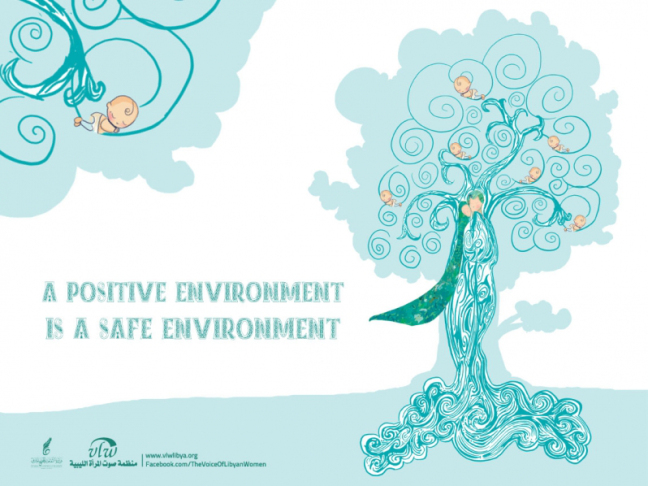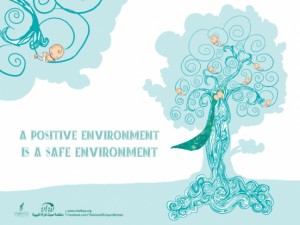By Alaa Murabit.
Alaa Murabit writes about her work to build . . .[restrict]religious literacy as a strategy for countering extremism. She identifies the pursuit of political power and misuse of authority as the root source of the deprivation of women’s human rights by religious institutions and in religious societies. Arguing that we must engage religion for its potential to affirm rights and build equal societies, she compels the reader to seek more nuance in our understanding of religious discourses and narratives.
George Bernard Shaw once said “beware of false knowledge; it is more dangerous than ignorance.” As we consider the wave of religious extremism sweeping much of the world, and its influence on civil rights and liberties, his wise words are particularly relevant.
Religion and culture are inarguably interconnected, but when it comes to the human rights of women and girls, it can be hard to know where one begins and the other ends.
Perhaps as a result, the influence of religion and culture is often overlooked in international efforts to achieve gender equality and women’s empowerment, which are already hampered by a lack of resources. In fact, attacks on gender equality are invariably the earliest warning signs of extremism.
We cannot hope to achieve women’s rights without understanding–and challenging–the purported ‘religious basis’ for extremism, the preeminent threat to international peace and security of our time.
The manipulation of religion to the detriment of women’s rights is not limited to any specific religion or geopolitical region. Undeniably, the real-world application of religious principles is a great challenge.
The deliberate manipulation of religion is the single greatest, most cost-effective method of socio-political control. Laws restricting reproductive rights in the United States are as much a byproduct of religious manipulation as are those that prohibit women from driving in Saudi Arabia.
On a larger scale, the misinterpretation and misrepresentation of religion is used as a political instrument of hate and fear, propelling hostilities rather than diffusing them.
Examples of this include the Indo-Pakistan war as well as the ongoing Palestinian-Israeli conflict. As one who has worked for years in the field now known as countering violent extremism, I know that a greater understanding of religion is essential.
With greater knowledge, we can challenge individuals and institutions that employ religion as a means of oppression and fear, and support religion’s true role as a source of tolerance and understanding.
Recent developments in much of the Islamic world clearly illustrate how religion and culture can be used as remarkable tools, both for positive and negative transformation.
Under the pretext of religious authority and piety, Islam has been misused and misrepresented by various political and social institutions to deprive women of power and respect. This is compounded by a taboo around religious discussion at an individual level.
Instead of debating and formulating personal views and perspectives on faith, individuals defer to the unquestioned opinions of scholars. This “middle-man” approach results in a lack of institutions of opposing thought and political agency, and ultimately of religious understanding and dialogue.
After completing a number of projects to promote international human rights standards and conventions, my organization, The Voice of Libyan Women, shifted our focus. We are now working to dispel dangerous cultural stereotypes and norms that have been misappropriated as religious law, and perpetuated by ignorance.
We have sought to bring attention to the gender-progressive foundation of Islam by highlighting verses from the Qur’an and revered sayings of the Prophet (PBUH) to illustrate the historical role of Muslim women as economic, political and social thought leaders.
Despite the deeply-rooted cultural mistreatment of women in some Muslim countries, the Islam and women’s rights are not mutually exclusive. As a result, and somewhat remarkably, religion is now being used a tool to fight for women’s human rights in Libya.
The current situation in Libya, as in other Islamic countries, can be seen as a microcosm of the complexity of religion worldwide. Religion is a mighty foundation for empowerment, understanding, and peace, yet its manipulation is at fault for extremism, wars, and atrocities.
Under the pretext of religion great wealth has been stolen, land seized, citizens exploited, and societies controlled. In the treatment of women, we see this injustice at its starkest.
Only through a greater understanding of extremists’ religious manipulation can we hope to challenge and overcome them, and build empowered, equal societies.
The article was first published on 5 February on Forumonwomen
Dr. Alaa Murabit is a medical physician and founded The Voice of Libyan Women, an organization that pushes for inclusive peace processes and conflict mediation by redefining the role of women in society using religious discourse to positively reinforce women’s rights, roles, and participation. Murabit is participating in The Carter Center’s 2015 Human Rights Defenders Forum. [/restrict]





